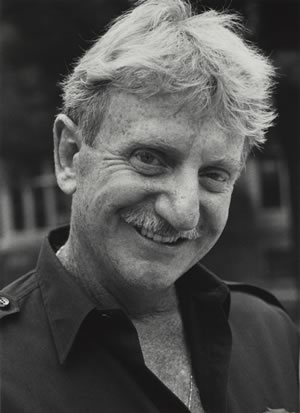Ron Podlaski
Ron Podlaski served in the United States military from 1966 until 1969 in what he calls the “Indochina War,” a conflict he sees as being between the U.S. and all the peoples of the region, not just the Vietnamese. He is a veteran who has struggled with America’s and Southeast Asia’s post-war legacy. In 1991, he returned to Cambodia to address the growing number of victims of land mine explosions there.
Ron grew up on Long Island as one of eight children in a single-parent family on welfare. As a young child, he spent time in the homes of his grandmother, mother, and aunt. “I was angry at authority, I was a street kid, and got in trouble with the wrong people.” In 1966, at the age of 19, he was given the choice of prison or the army and selected the army. Ron served in Vietnam as a paratrooper and, later, as a Green Beret for an elite mission to rescue pilots who had been shot down in Laos, Cambodia, and North Vietnam.
It was not until he returned to the U.S. that Ron Podlaski began to ask questions about the war. “In a war you don’t have time to ask the questions. The only question is survival.” He returned to New York in 1969, and helped organize the Vietnam Veterans Against the War (VVAW) in New York City and Long Island. Slowly he grew apart from the VVAW because he felt that “the real victims were the Vietnamese.” In 1977, after his best friend was murdered in Brooklyn, Ron retreated to Waterville, Maine, where he enrolled at the University of Maine to pursue an interest in children’s mental health. “I wanted to work with street kids and throwaways. I wanted to work with little Ron Podlaskis.”
For seven years, Ron focused on troubled kids at the Maple Hill School in Vermont, where disturbed, abused and neglected children were provided an opportunity to turn their lives around. As co-director, counselor, and teacher, Ron explains, “we worked with the toughest kids, but there was no violence. Our ideology was respect. We gave those kids stability, and unconditional love and support.” Ron remains an honorary board member, consultant, and fund-raiser for the school.
In 1986, Ron was elected Vice President of the Vietnam Veterans of America Foundation (VVAF). He hoped to involve all the veteran chapters in national community service and to work with the U.S. government to rescue the Amerasian children who had been left behind in refugee camps.
In 1991, Ron was sent to Cambodia by VVAF to address the growing number of disabled victims of land mine explosions. Accepting the challenge to build a prosthetics clinic, Ron established the P.K. Sethi Prosthetics Clinic and Training Center in Kien Khleang, Cambodia. In Kien Khleang, he found patients who were malnourished and needed medical attention, and wondered how a prosthetic limb could help someone who was too sick or too weak to work. He created a health clinic and hired a doctor and nurse to attend to the residents’ medical needs. Later he opened a training center, where “we trained disabled people to make prosthetics. We created jobs for the blind. We got the first tubular steel wheelchairs in Cambodia by purchasing the technology transfer rights, and beginning production,” he explains with pride. “We hired women facing discrimination because we were interested in hiring people who needed jobs. It was a low-tech and self-sustaining program, and we broke a lot of new ground.”
By the end of 1992, the clinic had provided more than 600 amputees with new limbs. To demonstrate the capabilities of the disabled land mine victims, Ron began a fishing and farming program and put residents in charge of running and maintaining it. “When you went to Kien Khleang,” Ron explains, “you saw fishponds, gardens, and people working. You saw ability and not disability.”
In 1994, Ron left the VVAF, married a Cambodian woman, Meas Bopha, and began dividing his time between the Maple Hill School in Vermont and his work with the disabled in Cambodia. There he founded a small river tour business that trained and employed disabled war victims.
Ron Podlaski has struggled against years of post-war ignorance. “By working directly with the Cambodian victims of war, I can avoid the bureaucracy and corruption of the government and focus directly on the people who deserve help and attention.” Ron has recently turned his attention to another Southeast Asia country. “There are still millions of unexploded bombs in Laos. Why is the international land mine campaign being diverted from Laos? Children are dying because no money is made available for emergency medical care and nobody is doing anything.”
 Photo by Dorothea von Haeften
Photo by Dorothea von Haeften